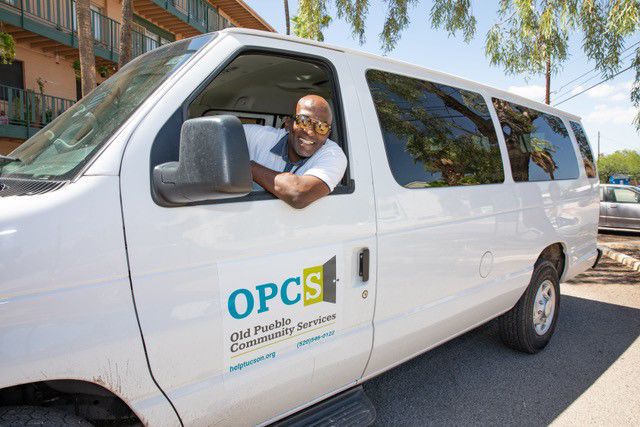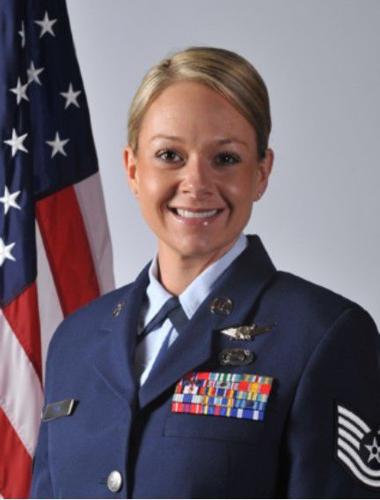‘Tis the season of giving and Giving Tuesday (or #GivingTuesday) on Dec. 3 provides an opportunity to reconnect with the reason for the season.
Created seven years ago with the simple purpose of encouraging people to come together on the Tuesday after Thanksgiving to do good works and celebrate philanthropy, the movement raised $400 million online last year for nonprofits worldwide.
This year, more than 270 local nonprofits of all sizes will participate in the event. Whether you want to support animals, the arts, children, community development, education, the environment, human services or seniors, you’ll find a charity to suit your interests.
Online contributions are just one way to get your Giving Tuesday on. Many organizations are also in need of volunteers and/or in-kind donations.
Old Pueblo Community Services (OPCS) is one local organization that offers multiple opportunities for involvement, said Chief Executive Officer Tom Litwicki.
The local nonprofit, which was founded in 1996, is on a mission to provide housing, counseling and support services for people facing homelessness through a “Housing First” model. Clients include veterans; those re-entering the community after incarceration or spending time in institutions; and the chronically homeless, many of whom are struggling with addiction or mental illness. OPCS provides safe, affordable housing options to approximately 400 people every day. This includes site-based transitional housing with on-site case management and behavioral health supports to multifamily apartments and individual permanent housing units throughout Pima County.
“This model is unique in that, historically, most models try to get people ready for housing before placing them in housing. Housing First gets people into housing immediately and then works on their other problems,” said Litwicki.
He said Housing First subscribes to the philosophy that basic needs such as shelter and food must be met before people can work to solve their other problems and transform their lives.
“Once they have food and shelter, from there they can build on the other needs, such as medical issues or disability, mental health and employment. With the Housing First model, what you end up doing is reducing costs. Instead of spending all that money for people to go in and out of shelters, by putting them directly into housing it actually saves money,” said Litwicki.
Litwicki said Medicaid reports a savings of about $13,000 annually per client when they are settled in permanent housing.
“You don’t see that savings with other models. The cost of housing is offset by the savings in medical care,” he said.
Brian DeGrafenreid, 57, can attest to the success of the model.
DeGrafenreid, who discovered OPCS when he was incarcerated, utilized its services to transition back into society after he was released in 2015. He now works as an OPCS outreach navigator to the homeless community.
“Having housing really gave me a sense of ownership and a safe haven so I could work on my addiction and other issues in my personal life. Housing gave me somewhere safe and kept me out of the elements that you are exposed to on the street. I didn’t have to worry about where to lay my head down or food and clothing and it gave me the opportunity to get my bearings as far as moving forward with my life,” he said.
He believes the support from OPCS really helped him to change his life and hopes that people will come forward to support its efforts.
“If people don’t have this type of support, when they get out of prison they go back on the streets and they reoffend — they rob or steal or deal drugs. If Old Pueblo can help even one person turn our lives around for the better, it is relief on the community. I am proof that it is never too late to turn your life around,” he said.
Kira Reid is also a huge proponent of OPCS.
The 35-year-old veteran found herself nearly homeless after surgery to remove a brain tumor and injuries from a car accident left her struggling with alcoholism in an effort to avoid addiction to pain killers, she said.
Fellow veterans at OPCS ultimately helped Reid with recovery. She utilized transitional housing while in an intensive outpatient treatment program and credits the programs for helping her keep her home and her children. Now 15 months sober, Reid is a relief recovery aide who assists others at OPCS.
“I think Old Pueblo is a pure blessing. It really gives you a safe place to get healthy and be around others who you feel comfortable with. You feel like you can heal without being judged,” Reid said.
She said OPCS’ programs and resources are sought by veterans nationwide who are unable to find similar services elsewhere.
“You are around like-minded people who are going through the same thing. It almost feels like a home away from home versus maybe a more clinical setting that I find more unwelcoming and less comfortable to heal old wounds,” she said.
Ultimately, Reid said she believes that if a person is willing to work with OPCS and make use of its many resources, they will succeed.
“I have seen it not only in myself, but working here, I have seen it happen every day,” she said.
To facilitate that success on GivingTuesday, Litwicki encourages people to consider in-kind donations of items such as new and gently used jackets, sweaters and sweatshirts in adult sizes for men and women.
Gloves, hats, socks and blankets are also needed and can be dropped off at Old Pueblo Community Services, 4501 E. Fifth St.
Equally vital are monetary contributions, which can be made online at https://helptucson.org or by calling 520-546-0122.
Litwicki emphasized that these contributions allow the organization to assist clients with attaining utilities and other necessities and also to extend services to individuals not covered by government assistance programs.
“We come from the core belief that everyone deserves safe housing. ... It is not acceptable that people don’t have housing,” Litwicki said.
For those interested in giving financially, he is also promoting awareness that OPCS qualifies for the Arizona Charitable Tax Credit, which allows a dollar-for-dollar tax credit of up to $400 for individuals and $800 for married couples filing jointly on 2019 Arizona income taxes.
In reality, a $400 donation helps cover one month of housing expenses for an individual and $800 helps cover housing for a family.
Overall, Litwicki wants to remind people that OPCS offers an ideal opportunity for the public to help alleviate homelessness this holiday season.





